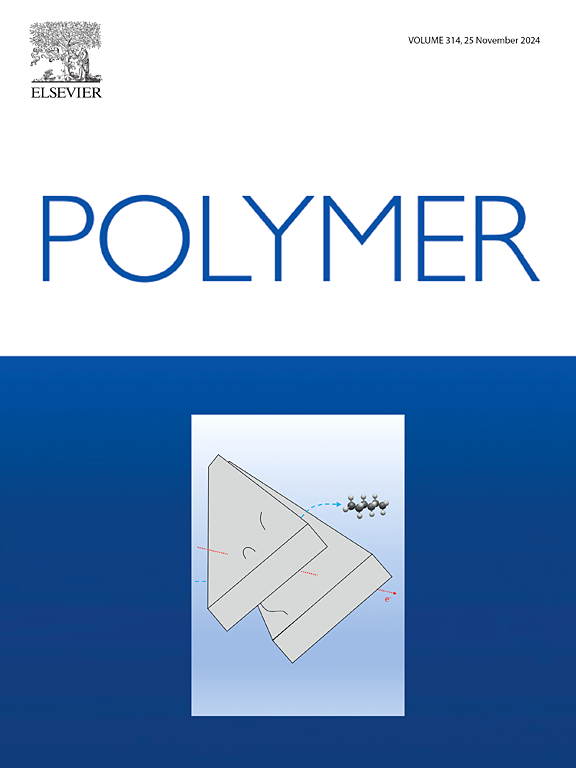Eco-friendly epoxy resin derived from tung oil and their sustainable recycling
IF 4.1
2区 化学
Q2 POLYMER SCIENCE
引用次数: 0
Abstract
Eco-friendly plastics are an emerging class of sustainable polymers. However, the process of developing high-performance sustainable polymers often requires the preparation of high-purity monomers from less pure biomass feedstocks. This process is not only complex, but also makes the bio-based feedstock less atom-economical, resulting in higher product costs. In this study, it is proposed to develop cyclic epoxy monomer from tung oil (TO), which are reacted with citric acid (CA) in simple curing reaction to prepare tung oil-based epoxy resins with sustainable recycling properties. These epoxy resins are thermally stable and possess tunable mechanical properties. The dynamic reversible covalent bonding of β-hydroxy esters introduced in the crosslinked network gives the polymer both reprocessable and chemically recyclable properties. In addition, the abundant hydroxyl are able to produce a variety of non-covalent interactions with the adherent substrate, thus exhibiting excellent adhesive properties. The combination of plant oil, thermoplastic-like behavior, and sustainable recycling provides new ideas for the development of new plant oil-based eco-friendly polymer materials.


从桐油中提取的环保环氧树脂及其可持续回收利用
环保塑料是一类新兴的可持续聚合物。然而,开发高性能可持续聚合物的过程往往需要用不太纯净的生物质原料制备高纯度单体。这一过程不仅复杂,而且使生物基原料的原子经济性降低,导致产品成本增加。本研究以桐油(to)为原料,与柠檬酸(CA)进行简单固化反应,制备具有可持续回收性能的桐油基环氧树脂。这些环氧树脂热稳定,具有可调的机械性能。交联网络中引入的β-羟基酯的动态可逆共价键使聚合物具有可再加工和化学可回收的性质。此外,丰富的羟基能够与粘附底物产生多种非共价相互作用,从而表现出优异的粘附性能。植物油、热塑性类行为和可持续回收的结合为新型植物油基环保高分子材料的开发提供了新的思路。
本文章由计算机程序翻译,如有差异,请以英文原文为准。
求助全文
约1分钟内获得全文
求助全文
来源期刊

Polymer
化学-高分子科学
CiteScore
7.90
自引率
8.70%
发文量
959
审稿时长
32 days
期刊介绍:
Polymer is an interdisciplinary journal dedicated to publishing innovative and significant advances in Polymer Physics, Chemistry and Technology. We welcome submissions on polymer hybrids, nanocomposites, characterisation and self-assembly. Polymer also publishes work on the technological application of polymers in energy and optoelectronics.
The main scope is covered but not limited to the following core areas:
Polymer Materials
Nanocomposites and hybrid nanomaterials
Polymer blends, films, fibres, networks and porous materials
Physical Characterization
Characterisation, modelling and simulation* of molecular and materials properties in bulk, solution, and thin films
Polymer Engineering
Advanced multiscale processing methods
Polymer Synthesis, Modification and Self-assembly
Including designer polymer architectures, mechanisms and kinetics, and supramolecular polymerization
Technological Applications
Polymers for energy generation and storage
Polymer membranes for separation technology
Polymers for opto- and microelectronics.
 求助内容:
求助内容: 应助结果提醒方式:
应助结果提醒方式:


